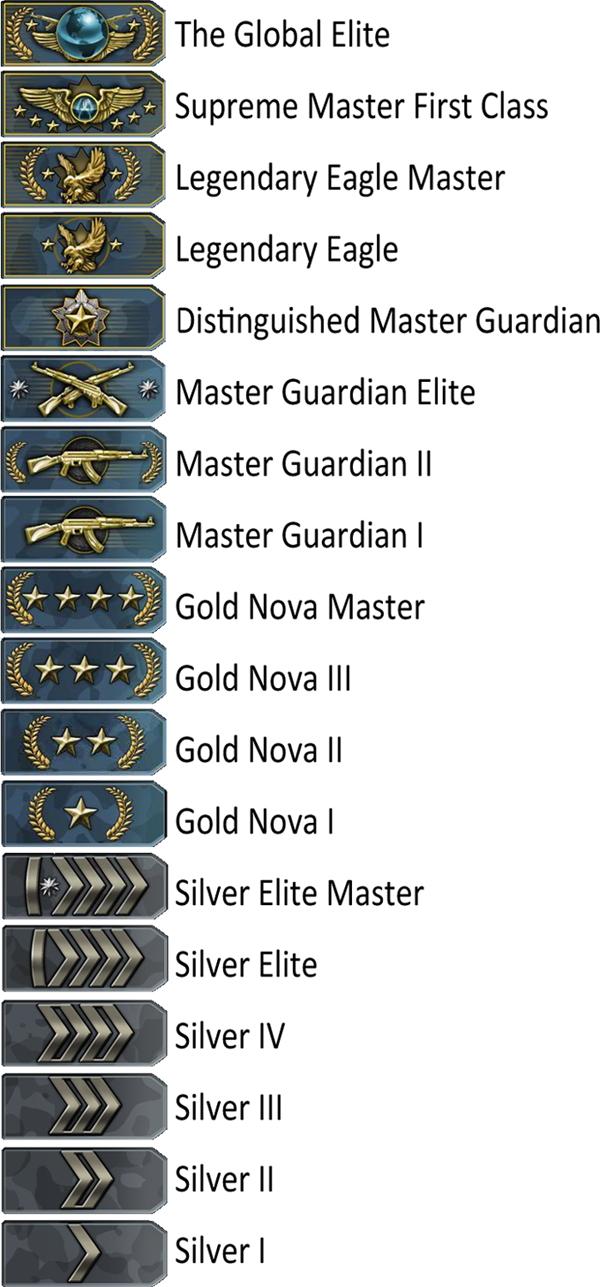AIM Uncovered
Exploring the latest insights and trends in technology and innovation.
Rising Through the Ranks: A Counter-Strike Odyssey
Uncover the secrets to mastering Counter-Strike and rising through the ranks. Your ultimate gaming journey starts here!
The Evolution of Competitive Play: Tracing Counter-Strike's Competitive Scene
The world of competitive gaming has dramatically evolved over the years, and few titles have had as profound an impact as Counter-Strike. Originally launched in 1999 as a mod for Half-Life, Counter-Strike quickly became a staple within the gaming community, leading to the creation of dedicated tournaments and leagues. By 2000, the game's competitive scene began to solidify with the emergence of the Cyberathlete Professional League (CPL), which set the stage for organized competitive play. As esports continued to blossom, the release of Counter-Strike: Source in 2004 and the more recent Counter-Strike: Global Offensive (CS:GO) in 2012 elevated the game further, attracting a wider audience and increasing the stakes of competitive play.
The competitive landscape of Counter-Strike has evolved not just in terms of gameplay mechanics, but also through technological advancements and growing community support. Major tournaments, such as ESL One and DreamHack, have showcased top-tier professional teams and players, leading to a rise in dedicated fan bases and sponsorship deals. Today, the competitive scene is characterized by global leagues, streaming platforms, and multi-million dollar prize pools, reflecting the immense popularity and cultural significance of Counter-Strike. As we trace the trajectory of this iconic title, it's clear that competitive play has transformed gaming from a casual pastime into a major global phenomenon.

Counter-Strike is a popular tactical first-person shooter game where players engage in team-based battles. Players often customize their gameplay experience by editing their config file to enhance performance and tailor controls. The game has evolved through various iterations, maintaining a strong competitive scene and a dedicated player base.
Top Strategies for Climbing the Ranks in Counter-Strike
Climbing the ranks in Counter-Strike requires a combination of skill, strategy, and consistent practice. One of the most effective strategies is to focus on improving your aim and reflexes. Regularly practicing your aim through aim training maps or third-party tools can lead to significant improvement. Additionally, mastering the mechanics of movement is crucial; learning to strafe effectively and understanding how to counter-strafe will give you an edge in duels. Make it a habit to watch professional players' streams or matches, as this can provide insights into advanced techniques and strategies.
Another important aspect of ranking up in Counter-Strike is teamwork and communication. Cohesive team play often outweighs individual skill. Always communicate with your teammates about enemy positions, strategies, and your own movements. Incorporate effective callouts and maintain a positive attitude, as toxic behavior can lead to losing matches. Moreover, consider developing a few strategies with your team, such as coordinating bomb site takes or executing effective retakes. By combining individual skills with solid team dynamics, you’ll significantly enhance your chances of climbing the ranks.
What It Takes to Become a Pro: Insights from Counter-Strike Champions
Becoming a professional Counter-Strike player requires a unique combination of skill, dedication, and a keen understanding of game mechanics. Champions often emphasize the importance of practice; dedicating hours to mastering maps, weapon mechanics, and honing reflexes is critical. Not only do players need to focus on their individual performance, but they must also learn how to work effectively as part of a team. This involves understanding team dynamics and developing communication skills that ensure seamless cooperation during matches.
Another essential factor in achieving professional status in Counter-Strike is the ability to adapt. The game is constantly evolving, with regular updates that can change the meta and strategies. Professionals must stay ahead of the curve by analyzing gameplay, studying other champions, and continuously refining their own approach. Coaching and mentorship also play a significant role; many pros credit their success to experienced coaches who provide valuable insights and feedback. Ultimately, becoming a pro is not just about talent, but also about a relentless pursuit of improvement and a deep passion for the game.